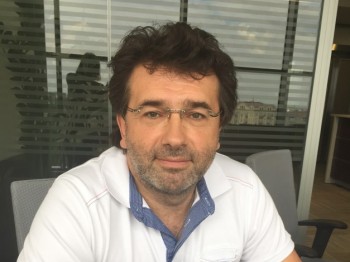Stanislav Kazda: The Experience of Establishing a Retail Gas Market in the Czech Republic
Stanislav Kazda, the director of the regional gas company development strategy, told Ukrainian Energy about his vision of creating a competitive gas market for domestic consumers in Ukraine.

Stanislav Kazda, the director of the regional gas company development strategy, told Ukrainian Energy about his vision of creating a competitive gas market for domestic consumers in Ukraine.
- Mr. Stanislav, you've participated in the liberalization of gas markets in various Central European countries, including the Czech Republic. What are the most important steps Ukraine needs to take?
- First, in order to start up the market, it is necessary to end the state regulation of gas prices. Gas supply is not a monopoly social service. Therefore, it's not the state's place to regulate it.
It should just subsidize low-income consumers. The amount of social benefits - this is exclusively an issue for the state, not market participants. In my opinion, it is unacceptable to combine the liberalization of the market with the issue of economic development. The social aspect, the question of subsidies, must be resolved without reference to market liberalization. Otherwise, it won't happen.
Secondly, one should not expect that the market will be effective immediately and competition will lead to a sudden fall in prices. In the Czech Republic, where liberalization was carried out back in 2007, this took seven years.
- What kind of price decreases did you see?
- I will give you data from a public site certified by the Czech market regulator. It shows the number of suppliers and gas offers over the past seven years. Let's take an apartment and a house in the suburbs of Prague as an example.
In 2010, when purchasing 50 cubic meters of gas per year for cooking, I received four offers from four suppliers. I was offered a cubic meter of gas for 44 hryvni. And that was three years after the liberalization of the market!
Seven years later, I could buy the same amount of gas for the same apartment from more than 60 suppliers. Among them are regional companies (oblenergos), banks, and mobile operators. I received more than 200 offers from them. The average cost of a cubic meter was 37 hryvni. But there were also proposals of a cubic meter for 133 hryvni with the opportunity to receive additional services, like free maintenance of gas appliances.
You can see the price change in the presentation. In 2010, I was offered a cubic meter of gas for 15 hryvni; now I can buy it for 12. It should be noted that for this consumer segment, the regulated tariffs - transportation and distribution - have actually increased. But the price of gas for the end user has decreased. And the market put everything in its place; the state didn't affect the situation in any way.
- In your opinion, how much might prices in Ukraine rise after the launch of the retail gas market?
- When the liberalization of the gas market took place in the Czech Republic, its price initially increased 20-30%. I expect the increase in the price of gas as a commodity in Ukraine to be about two times higher. Therefore, it is necessary now to begin explaining to consumers that if you want to use gas, its cost will be higher, because the existing gas price is being regulated and is now lower than the market price.
Without that, the market is impossible, and nobody will be able to work on it. The consumer has to understand that gas supply is not a social service.
- But in the end Ukrainians should expect an economic effect?
- Yes, I'd like to emphasize that the gas price for the consumer in the Czech Republic has declined over these seven years. Today, the gas in the Czech Republic is cheaper than when the price was set by the state.
That happened due to a decrease in the cost of gas as a commodity, because suppliers were encouraged to look for a cheaper resource to make more profitable offers. For instance, they found shale gas instead of Russian or Norwegian gas. The same will happen in Ukraine. If you start selling all the domestically extracted gas on the stock exchange, the same principle will apply. Suppliers will try to lower their operating costs in order make better offers to consumers, even without the monetization of subsidies.
- Why, in your opinion, did the reform of the retail gas market not work?
- The fact is that there are independent suppliers in Ukraine, but they're not interested in working with domestic consumers. This is because the state isn't fulfilling the requirements of the Third Energy Package concerning the transition period. Such a period is really needed, the question is just how to go through it.
The same applies to suppliers that have been separated from gas distribution system operators. They have been working for two years now and are completely independent. Now gas distribution companies, together with the Energy Community Secretariat, conduct audits of gas distribution network operators for compliance with the Third Energy Package. The preliminary results of the auditing indicate that these companies are in compliance.
Unfortunately, the consumer has not received any benefits from the separation of suppliers from distribution companies. Effort, time, and money were spent in vain. The reason is that the market has not yet become operational. The state is not complying with the requirements of the Third Energy Package and retains control over gas transmission, some of the gas distribution systems, and Ukrgazvydobuvannya. In addition, there are barriers to importing and storing gas, and the price of gas is regulated. Without compliance with the requirements of the Third Energy Package, market liberalization is impossible.
